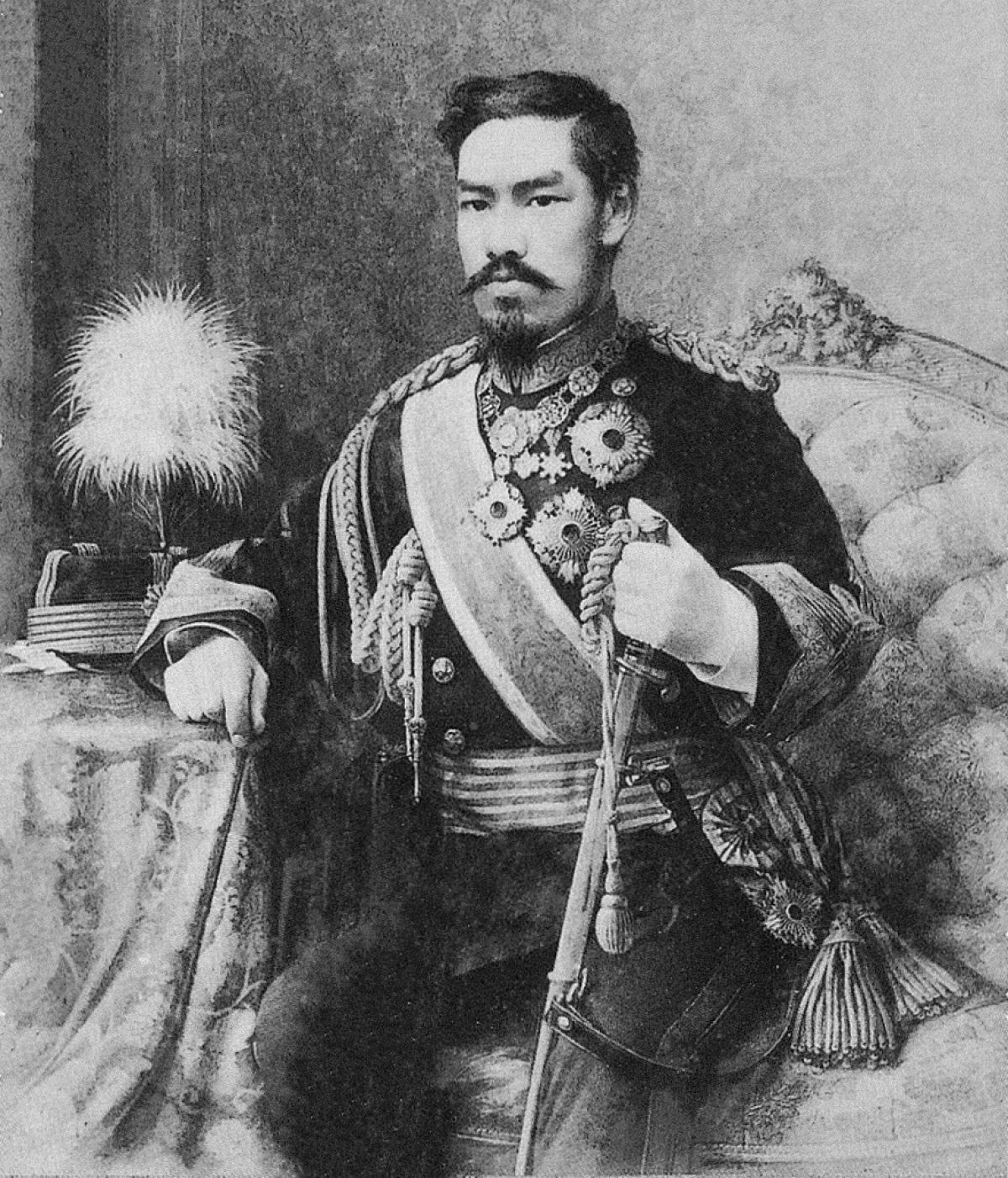Meiji, << MAY jee >>, Emperor (1852-1912), reigned over Japan from 1867 to 1912. Meiji means enlightened rule, and the period of the emperor’s reign was known as the Meiji era. During the Meiji era, Japan began to develop as an international industrial and military power.

The emperor gained the throne shortly before a revolution known as the Meiji Restoration. A group of military lords called daimyo and hereditary warriors called samurai forced the shogun (warrior ruler) out of power. Shoguns had formally ruled Japan in the name of the emperor since 1185. The leaders of the revolution and their successors were the real rulers during the Meiji era. In the emperor’s name, they carried out many reforms. They organized a modern army and navy, created a system of public education, promoted industrial development, and built modern systems of transportation and communication.
During the Meiji period, Japan began to expand its international influence. It won wars against China in 1895 and Russia in 1905. In 1910, Japan made Korea a colony. After forming the Anglo-Japanese alliance with the United Kingdom in 1902, Japan gained international recognition as an equal of the Western powers.
The emperor, whose given name was Mutsuhito, was born on Nov. 3, 1852, in Kyoto. He died on July 30, 1912. In keeping with the practice of the Shinto religion, he was enshrined as a god after his death.
